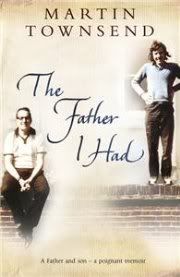
New Scientist has produced a Special Report which the cover of the 26 July 2008 issue summarises as: The forbidden question - what's wrong with reason?. It comprises seven closely-argued essays bookended by a piece by AC Grayling entitled How humans dared to know, and an editorial, Daring to admit what's wrong, and hangs largely upon the legacy of the Enlightenment.
If you're interested and don't have this issue to hand, you can only access the full articles electronically if you have a subscription to New Scientist; otherwise, I recommend you find a library that collects the magazine, or alternatively contact your local college and , if they stock it, ask if you can access their library.
The first essay is by Dr Rowan Williams, the Archbishop of Canterbury, who writes:
Reason became a tool for protesting against the violence of arbitrary authority, and the great minds of the Enlightenment were confident that they were on the side of equality and universality: being reasonable was the heritage of each human person...but [we do not have grounds] for overturning the entire legacy of the Enlightenment, but for pausing before we assume that instrumental reason will answer all the questions about how to shape a moral and humane world.
The editorial ending the section refers to the Archbishop's contribution thus: "[reason can never] furnish us with absolute conviction about, say, the value of a human being and the necessity of opposing torture or racial discrimination. "
And there's the rub: Reason, as reified and deified by the Enlightenment thinkers, wasn't and isn't interested in absolute value. Its morals are encapsulated by utilitarianism, the relativist philosophical school founded by Jeremy Bentham, who preached that if people's free choice was increased in all areas, then market forces - recently defined by Adam Smith - would increase prosperity - and therefore happiness - for all. Crimes were harms against happiness and nothing else. (See the catch?) Bentham's disciple, James Mill, believed that when decisions were freely taken, they would always be in the individual's interest and the cumulative effect would benefit society - an early form of game theory. His son, John Stuart Mill, was more aware of the importance of the higher emotions, so much so that, thankfully, the father's philosophy is dead in the water before the Introduction to the son's Utilitarianism is finished.
I have to admit, however, that I was starting to feel discomforted long before the special report, as I made my way through the magazine. For example, an article on why we shouldn't fear a mega-catastrophe is illustrated by an untitled preacher with a placard reading THE END IS AT HAND. There was a Comment and Analysis piece by science writer Michael Brooks, whose earlier NS article In Place of God, which examined ways in which science could replace religion, had earned positive comments on Richard Dawkins' anti-religion website. His present article is entitled Faith in Denial, subtitled "The Catholic church's insistence on demonising IVF is making it look irrelevant and out of touch".
In the strange way that radical militant atheists have of praising Islam, Brooks contrasts Muslim views on IVF to the Catholic Church's without commenting on the prescriptions for couples to live in an Islamic way that he reports. In a different context but on the same theme, Schools Minister Ed Balls made an attack on faith schools this April that was described by Frank Field as "incomprehensible [and] near criminal", but by May was calling for Muslim clerics to teach Islam to children in schools as part of lessons on multiculturalism.
On the letters page, one of the letters mentions Galileo and the Church's  rocky relationship with science through the ages, with the almost-compulsory cartoon of somebody about to be burnt at the stake (right). So, readers who aren't quite sure what they believe have been well-groomed even before they come to AC Grayling's introductory piece, which informs us that critics who blame the Enlightenment for state-sponsored madness from the Reign of Terror to Nazism and Stalinism have got it all wrong. Rather, "a key feature of the Enlightenment [is] namely that it opposed the monolithic hegemonies of church, state and ideology, arguing instead for pluralism and individual freedom...the tyrannies of Nazism and Stalinism were monolithic hegemonies in precisely this sense and were, therefore, as far from being descendants of the Enlightenment as could be." So, basically, if it looks like a fish and smells like a fish, it's only a fish as long as we choose not to give it another name, which would make it something else.
rocky relationship with science through the ages, with the almost-compulsory cartoon of somebody about to be burnt at the stake (right). So, readers who aren't quite sure what they believe have been well-groomed even before they come to AC Grayling's introductory piece, which informs us that critics who blame the Enlightenment for state-sponsored madness from the Reign of Terror to Nazism and Stalinism have got it all wrong. Rather, "a key feature of the Enlightenment [is] namely that it opposed the monolithic hegemonies of church, state and ideology, arguing instead for pluralism and individual freedom...the tyrannies of Nazism and Stalinism were monolithic hegemonies in precisely this sense and were, therefore, as far from being descendants of the Enlightenment as could be." So, basically, if it looks like a fish and smells like a fish, it's only a fish as long as we choose not to give it another name, which would make it something else. Pluralism and individual freedom look very nice on paper, but human acquisitiveness in terms of goods and power cannot be wished away by a utopian theory. It's not for nothing that Thomas More (left) placed his perfect society (Utopia is Greek for no-place) on a fictional island; had Hegel, Marx and Engels, as well as Neitsche, Wagner et al, chosen Atlantis as a stage on which to play out their ideas, the twentieth century might have contained some happier times.
Pluralism and individual freedom look very nice on paper, but human acquisitiveness in terms of goods and power cannot be wished away by a utopian theory. It's not for nothing that Thomas More (left) placed his perfect society (Utopia is Greek for no-place) on a fictional island; had Hegel, Marx and Engels, as well as Neitsche, Wagner et al, chosen Atlantis as a stage on which to play out their ideas, the twentieth century might have contained some happier times.
What if somebody in our pluralistic society take a personal decision to join or remain in a religion? If they also wish to work in education or the sciences, they may well find themselves the subject of bullying, to a more or less subtle degree, the bullies' aim being to chase people of faith out of universities and laboratories.
The upshot of this is that we are increasingly ruled by and cared for by those who believe that they know better, operating on a utilitarian sliding scale of values based upon benefits to and harms upon sectors of society who are not always on the level playing ground that one would imagine would be prerequisite to such calculations. We find ourselves in a society with porous moral, intellectual and legal boundaries that fêtes a professor of mathematics who has created much of the stuff of modern scientific thought, but tries to ensure that others with his disabilty don't have the chances that he had merely to survive; legislates for human beings to be born for others to feast on their component parts; tries to combat snowballing underage pregnancy and STD figures by teaching ever younger children about sex, to the point where concerns about state sponsored sexual abuse are raised.
Still, New Scientist's censors let a statement through in Archbishop Williamson's essay that I think would have attracted the blue pencil previously: "Even gentle, wise Darwin could use language suggesting that some humans were less "developed", nearer their primate cousins, than others. That language was gleefully exploited by ideologues of empire and racial domination." Given that Richard Dawkins has gone on record to say that in his opinion Darwin was the greatest human being who ever lived (in a footnote in the 30th anniversary edition of The Selfish Gene), perhaps the subs are finally starting to put distance between themselves and their present ideological masters.
Overall, though, I wonder if an honest prof grading this issue as a submitted work might not mark it "could have done better".



 It's less than a century since Dr Crippen was found guilty of the murder of one person - his wife - and hanged. Now a man who is happy to publicise his murderous pastime - he boasted in a 2004
It's less than a century since Dr Crippen was found guilty of the murder of one person - his wife - and hanged. Now a man who is happy to publicise his murderous pastime - he boasted in a 2004 
 15 this year, Sudan's president,
15 this year, Sudan's president,  bs of the breadbasket of Africa, is in the news every day. Also, Chinese involvement in Sudan, highlighted by
bs of the breadbasket of Africa, is in the news every day. Also, Chinese involvement in Sudan, highlighted by 


 blow against mysogyny in the churches came not from religion but from science when, in 1953, Watson and Crick published the structure of DNA. Through time it was discovered that the main difference, genetically, between the genders is that women have two X chromosomes, and men have an X and a
blow against mysogyny in the churches came not from religion but from science when, in 1953, Watson and Crick published the structure of DNA. Through time it was discovered that the main difference, genetically, between the genders is that women have two X chromosomes, and men have an X and a 
 but it is in fact the interviewer,
but it is in fact the interviewer, 
 I've recently added In the Mouth of Madness to my list of favourite films. It begins with Sam Neill confined to an old-style asylum, and flashbacks flesh out the story, or alternatively peel the layers of sanity from John Trent's (Neill's character's) mind.
I've recently added In the Mouth of Madness to my list of favourite films. It begins with Sam Neill confined to an old-style asylum, and flashbacks flesh out the story, or alternatively peel the layers of sanity from John Trent's (Neill's character's) mind.










